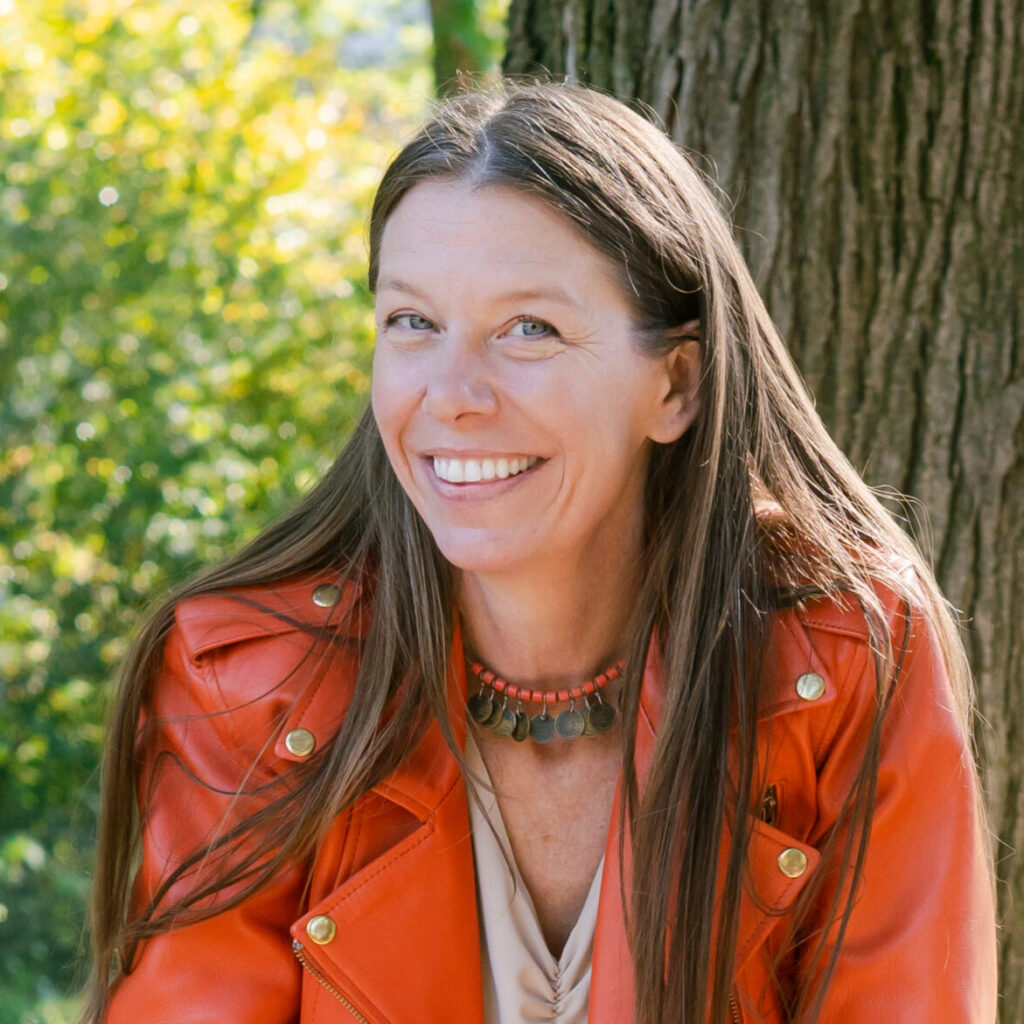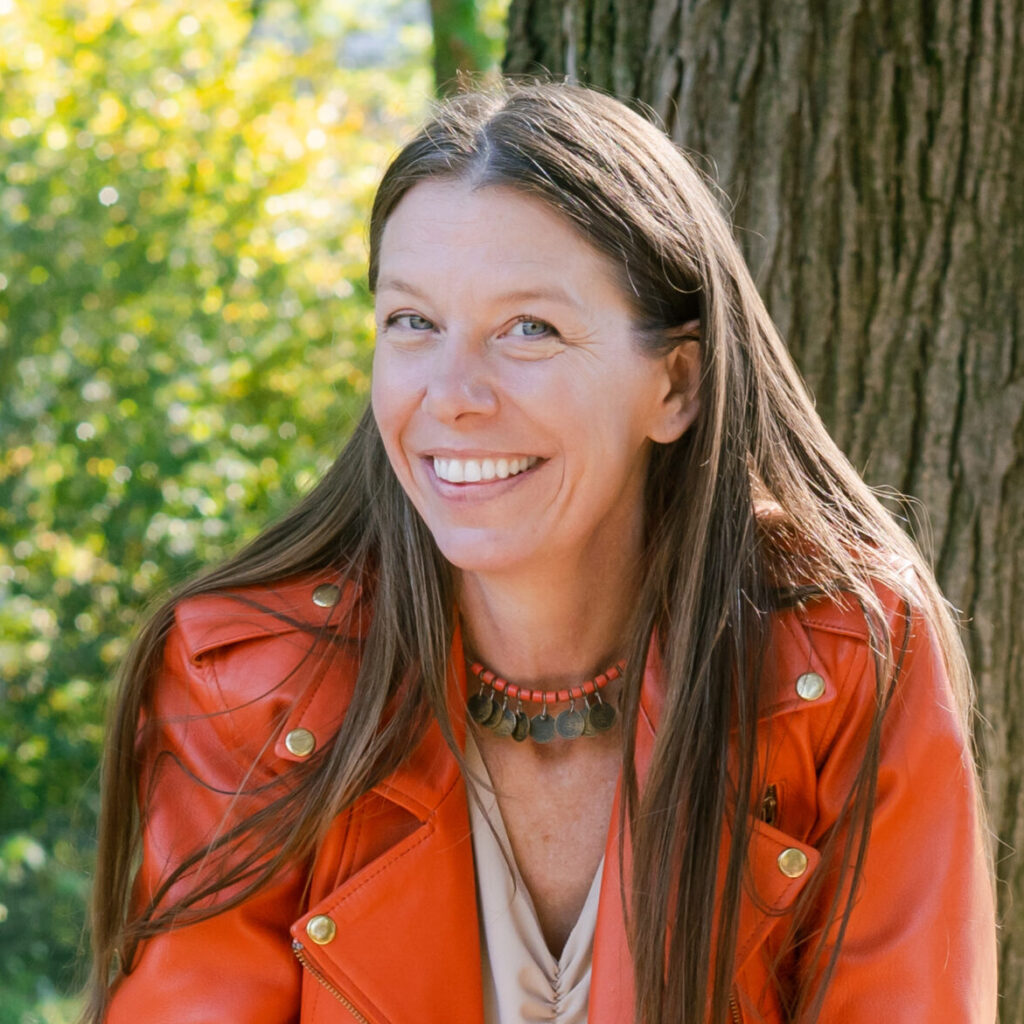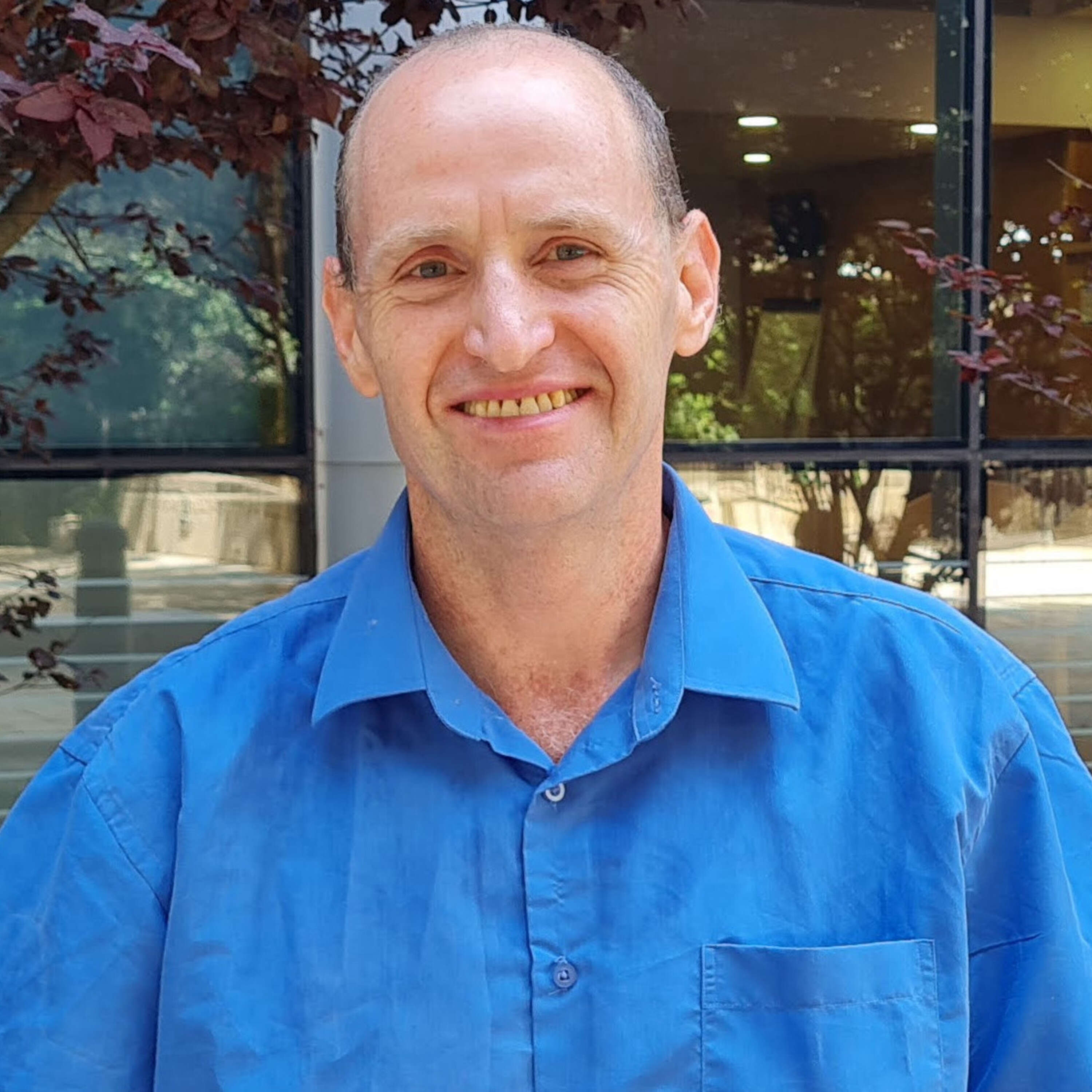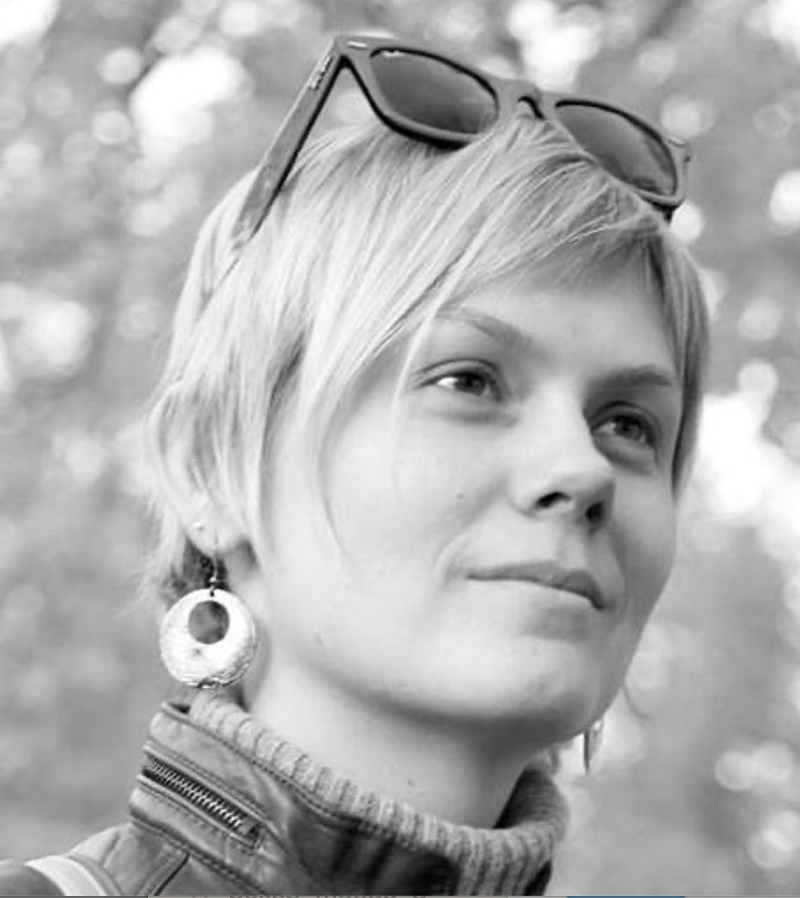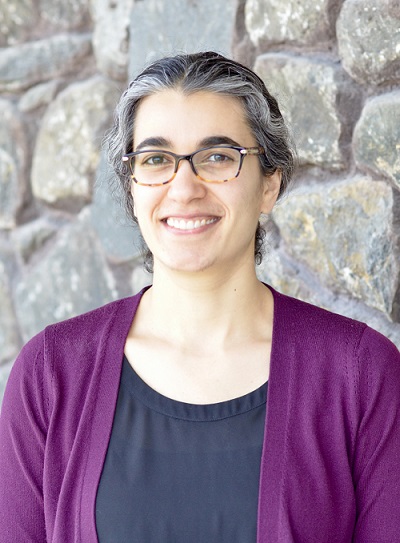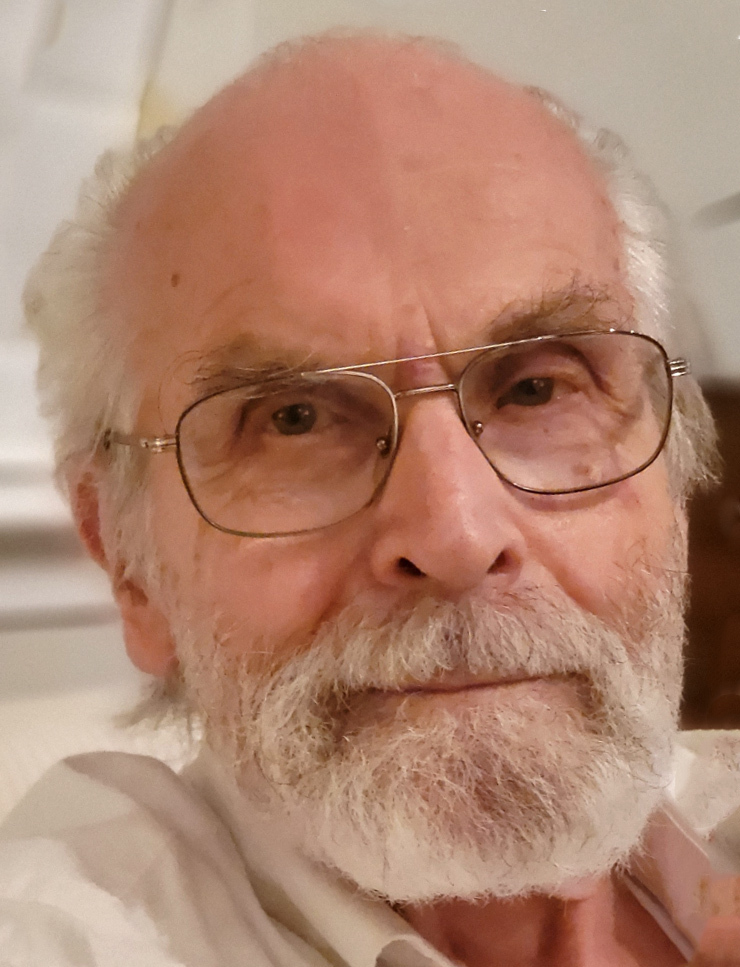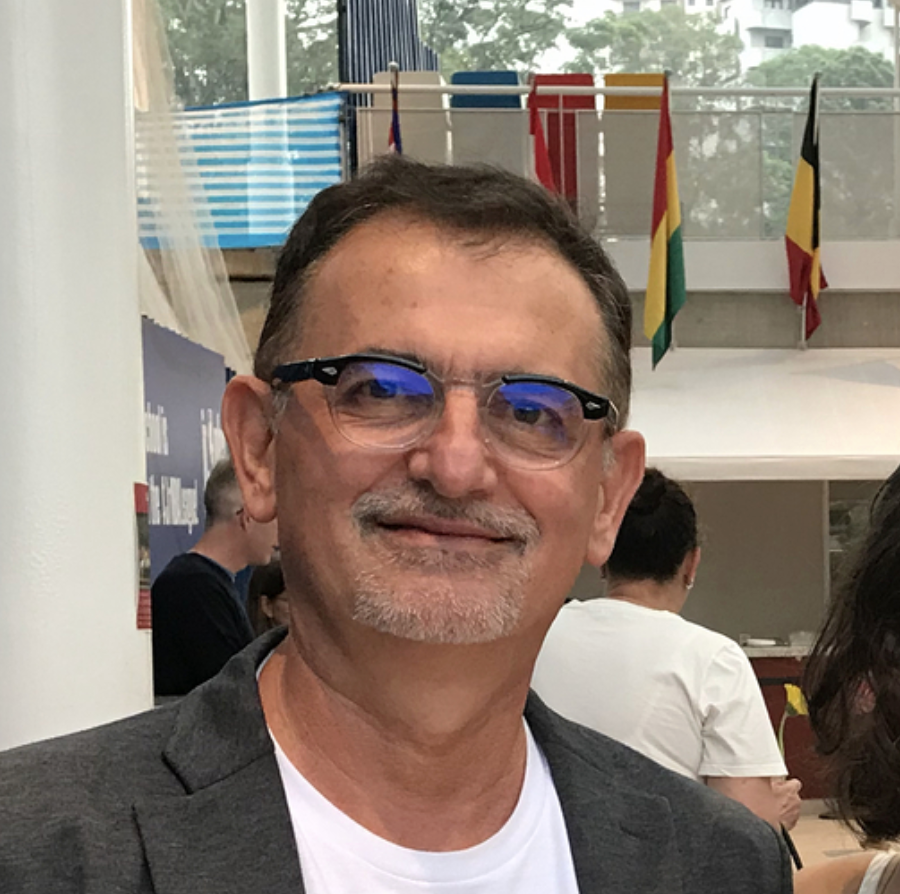Love it or Hate it: A Conversation about Collaboration with Psychologist and Author Deb Mashek
- 0.5
- 1
- 1.25
- 1.5
- 1.75
- 2
Jon Lenchner: Hello, this is Jon Lenchner, and welcome to On Not Knowing, a series of conversations about embracing a growth mindset. Today's guest is Deb Mashek, author of the new book, Collabor( h) ate: How to Build Incredible Collaborative Relationships at Work. Our producer, Andy Aaron, recently dropped off a copy of Deb's book for me. Well, Andy knows me pretty well, and collaboration is a topic I just couldn't resist. After reading the book, both Andy and I thought that a discussion of the book and the overall topic would make for a great podcast episode. So welcome, Deb, it's wonderful to have you here.
Deb Mashek: It's a pleasure to be here, Jon. Thanks so much for the invitation.
Jon Lenchner: So Deb, I know you grew up in South Dakota in a trailer park, so tell us a little about your upbringing.
Deb Mashek: Well, I was born in South Dakota and then raised in Nebraska. So I was one of three kids. We were growing up in a double- wide trailer, so it was one of the big trailers on the trailer park. And what I think was really unique about this child- rearing space is that there weren't a lot of adults around. And so we had a lot of freedom, and it would be nine o'clock in the morning and all of the kids in the entire trailer park would spill outside, and we had this canvas to just go play and to create play and to figure out together what we were going to do, how we were going to do it, what the rules were, how we were going to keep everybody in line.
Jon Lenchner: So it was a safe environment, hopefully.
Deb Mashek: Mostly, there were some bad accidents that happened and we knew where the adults were if we really needed them.
Jon Lenchner: So tell us about your education. I know you ended up getting a PhD and into academia, so how did your education work out?
Deb Mashek: Yeah, so I was a product of public schools in North Platte, Nebraska, and I think my parents must have valued education, but I don't really know that because they were both alcoholics, so they were dealing with their own demons as it were. So we weren't talking about college. It was a high school counselor who pulled me in and said, " Hey, Debbie, you're pretty smart. You should be thinking about going to college. There's this test called the ACT," but she helped me sign up. I took the test and did really well and started to qualify for scholarship money, and it was Jean Church who again pulled me into her office, and she picked up the phone and called the admissions counselor at Nebraska Wesleyan University and said, I'm sending over a file. It was because of this amazing counselor that I was able to start to see college as something that was in my future. And then it was another amazing teacher at Nebraska Wesleyan, Heather Bullock, who I just thought she was the bee's knees, and I wanted to grow up to be like her. And she had gone to graduate school and social psychology and gotten a PhD. So that started to seem like the most obvious next step for me, and I-
Jon Lenchner: Okay, back up just a little bit. So as a school- aged student, what subjects were you interested in?
Deb Mashek: As a young person, I loved all the sciences, so biology, I loved chemistry, I loved doing models of anything I could figure out. The science fair projects were my absolute favorite thing to do. I loved going and sitting by the river. So the Platte River is this very flat, slow- moving river, and I would just sit there and observe how the erosion was happening, but I loved the sciences.
Jon Lenchner: Okay. And kids didn't make fun of you growing up, being a relatively academically- minded kid?
Deb Mashek: Not that I was aware of. By the time I was a senior, I had fallen into this fantastic group of peers, so we were a bunch of kids geeking out. But to me, I think one of the other reasons I wasn't made fun of perhaps is because being a smart, academically- oriented kid was one of the strategies that I was deploying to garner positive adult attention and care. So my teachers loved me, my friends' parents loved me, so I got a heck of a lot of support there. That ended up being exactly the sort of nurturing that I needed.
Jon Lenchner: A professor at Nebraska Wesleyan got you interested in social psychology and based on that, decided to go to grad school.
Deb Mashek: Yeah. So I had applied to four universities for graduate school, got into two, and only one of them was able to offer me money to be a teaching assistant. So I headed out east to Stony Brook University out on Long Island. I thought I was moving to New York City because I had never been out here. I finally get to class, and it's my first semester I was put in Arthur Aaron's psychology of close relationships class. And from day one, I was so in love. Since then, I've been studying and teaching on the psychology of close relationships.
Jon Lenchner: Okay. So when you went to grad school, was your intention to become an academic person or to be a therapist? Did you have a plan?
Deb Mashek: I wanted to be a professor like Professor Bullock. I wanted to have that role in students' lives. I knew I wanted to teach. I knew I wanted to go be a professor at a small liberal arts college.
Jon Lenchner: Why is that?
Deb Mashek: Well, back in those days, there weren't necessarily a lot of centers for teaching and learning, which is a common office that's on campuses now where the assumption is everybody wants to go do primary research.
Jon Lenchner: You were more interested in the intentional interaction with students, is that right?
Deb Mashek: Yeah.
Jon Lenchner: So the way you translated close relationships was you were most interested in the professor- student relationship?
Deb Mashek: No, I was most interested in romantic relationships. So when I would teach the psychology of close relationships, it would be about hooking up, breaking up, everything in between. And what I loved about the idea of teaching is getting to make a difference in students' lives the way that so many people in my history, going back to preschool, I have memories of teachers being there and supporting me, and investing in me, and I wanted to do that in return.
Jon Lenchner: I see. Okay. Is there anything in your personal life that drove you to put that kind of relationship under a microscope?
Deb Mashek: I have two answers there. Having grown up in a household with a lot of chaos and instability around relationships, I think there was a piece of me that found this whole idea of a healthy, intimate relationship very mystifying. What do you mean that people are responsive to each other's needs in a persistent, appropriate, measured way? That just seemed very foreign, and so to make that a topic of academic study, I think, was also satisfying a personal need and curiosity. Then this other funny thing happened where I had rented a place sight unseen. There was already a housemate living there. There were three of them actually, and one of those housemates ended up being my husband. That's kind of an entertaining story. So now, suddenly, I get to start applying these ideas I'm learning in the classroom to figure out how to do this romantic relationship well.
Jon Lenchner: How receptive was he to being the object? You're studying this formally, you're trying to put these ideas that you're studying into practice.
Deb Mashek: Well, yeah, I don't know. I think a more interesting story is once we got divorced and I went a real dating scene for the first time. So now I'm in LA, I've been teaching and researching this stuff for decades at this point. And when people would find out that I'm a professor with expertise in the psychology of close relationships, they would feel, oh my gosh, are you analyzing me? Are you analyzing us? And what I realized fairly early on is that just because I have a vocabulary and a lens for explaining and understanding what's happening in those dynamics, that it doesn't change what the heart's feeling or experiencing. So there was this tale of two devs at the time where I would have these emotional reactions or I would observe myself withdrawing from someone who otherwise seemed quite lovely, and I'd have to come in my academic narrative to help me understand what I was doing.
Jon Lenchner: And then eventually, you shifted to looking at close romantic relationships to close working relationships. And that's the whole genesis of this book, Collabor( h) ate. So tell us, how did you make that transition from looking at romantic relationships to working relationships?
Deb Mashek: Yeah, so after graduate school, I went down to Fairfax, Virginia, and I was a research fellow there for three years at George Mason. And then I'm on the job market. And this was back in the day when all the jobs would be printed in a magazine called the APA Monitor. And I had gone through the APA Monitor and circled the schools I was going to apply to. And my spouse at the time came home, and he said, " Why didn't you circle Harvey Mudd College? This is one of those super- elite liberal arts schools that you say you want to go to. You need to apply to this." So I looked into it, and I ended up getting a tenured professorship there. So now I'm moving out to California, and my first semester on the job, I am in the middle of collecting data for a study, I needed 34 dating couples to round out a sample for a data collection I was doing. I kept recruiting, and finally, the students told me, " Prof Mashek, we're too busy to date. We're not dating." I struggled to get the sample. And so started to look at, well, what else could I be using these theoretical frameworks to understand? What other questions could I be asking? And I got really interested seeing the incredible connection the students had with their friends and with the campus community. And I started applying close relationship theories to thinking about campus community connections. And then, at one point, I don't know if everyone will know this, but the Harvey Mudd College is one of the five Claremont Colleges. You've got Pomona, Scripps, Pitzer, Claremont McKenna, Harvey Mudd College, and all these institutions are co- located on one single square mile of property. There's all this incredible potential for academic collaboration sitting there, but they're also totally independent institutions. So they have their own mission statements, their own residence halls, their own finances. They're separate. And so the deans of the five colleges had this impulse where they're saying, I think we're underleveraging the potential sitting on the single square mile of property that what if we could wire these five batteries together? What else might be possible? They got this grant from the Teagle Foundation, and they needed somebody to run the grant, and they tapped me on the shoulder and said, " Deb, is this something you might be interested in doing?" And I just lit up because here was another opportunity where I could take these theories about how we build relationships, how we support each other, and leverage them in service to a certain kind of relationship, which is inter- institutional collaboration.
Jon Lenchner: So I imagine that students can take classes at any of these universities that was already established, but you were looking at trying to have the faculty members collaborate more, is that correct?
Deb Mashek: Supporting their efforts to get to know and collaborate with their counterparts on other campuses. My job was to do a qualitative study to figure out what were the snags people were encountering to connect with each other, to launch research collaborations, to co- teach even things like, say, I invite you Jon to be a guest speaker at a brown bag. How do we actually communicate to everybody else that this amazing speaker is here and everyone's invited? Because there wasn't a shared communication mechanism that would allow that message to get out. So that was my foray into understanding that all this relationship stuff I'd been studying for so long was going to be helpful at the organizational level.
Jon Lenchner: Oh, nice. So did it have a long- lasting effect? Are the five universities working more in concert with one another?
Deb Mashek: Yeah, the grant was three years, and then we did another two- year add- on. We were able to launch this shoestring of an office that sits now at the center, and it's still there, at the center of the colleges, called the Office of Consortial Academic Collaboration. And we saw things like the creation of new majors that attracted new philanthropic support and new corporate partnerships and students. And so it's kind of like the dream scenario of collaboration.
Jon Lenchner: Okay. So I know that you didn't stay all that long at Harvey Mudd, that you've made a transition to industry, and actually this book, Collabor( h) ate is more about industrial collaboration than academic collaboration. So tell us about that whole transition.
Deb Mashek: Yeah, I was at Harvey Mudd either 13 or 14 years, so I rose through the ranks. I was a tenured full professor, and I loved it there. It was such a dream job. But then the 2016 election happened, and campuses everywhere in the states melted down. We saw the fissures that had been there, perhaps all along around left- right divides, urban rule divides, class divides, race divides, and I just put my head in my hands. It happened to be that that next week the course elections were due, and I decided I'm going to do a first- year writing course called I'm Right, You are Wrong. We're going to read Thomas Sowell's Conflict of Visions, and we're going to read Jonathan Haidt's the Righteous Mind. This senior shows up to my door, he knocks, come in inaudible, " Hey, Prof Mashek, I'm so excited about this class you're going to teach. I can't wait to take it." And yay, I'm excited too, but you can't take it because you're a senior. And this is a first- year writing class. And he offered the fabulous idea of, well, we could do an independent study, you and I could do it. And I jumped at the chance because to support students, and he was the one who told me about this organization that was just starting to bubble up in New York called Heterodox Academy. And the focus of it was about bringing more view point diversity to campus, about equipping the disciplines, and professors and students with the habits of heart and mind to engage constructively across lines of difference. And I went to their website, and it was kind of a half- baked website. It had a half- baked mission on it, but I signed up anyway. I said I want to be a member. So I signed up to be a member of this new organization, and then later that summer, this email comes across to all of the Heterodox Academy members saying, we're looking for our first executive director. And I knew that I needed to at least apply for this position to make a positive difference in higher ed for all of the students across all these institutions.
Jon Lenchner: A question, I don't quite have my head wrapped around this Heterodox, is that the name of it?
Deb Mashek: Yeah, Heterodox Academy.
Jon Lenchner: Okay. So tell me more about that organization, and you said, first, it seemed like you didn't understand it too well, but you were interested enough to become their executive director or apply to become their executive director. So tell us more. What was so exciting about this?
Deb Mashek: So I fell in love with this idea of being able to engage constructively across lines of difference. Being able to do that with curiosity, about not just what others believe, but why they believe it. Being able to have intellectual humility about I'm just one perspective in a really complex world. I started to understand those ideas much more fully, so much so that I found my way to wanting to commit a good chunk of my career to pursuing them and to equipping others with those habits of heart and mind.
Jon Lenchner: Oh, very neat. I mean, it seems so topical. I mean, I think since 2016, we've just gotten more and more just bigger and bigger wedge between us. But the fact that there is this organization and that you're pursuing it is wonderful.
Deb Mashek: Yeah. So I was their inaugural executive director for three years. So took it from a neat glimmer of a passion project into a fully formed 501C3 with membership strategies and influenced strategies, and then stepped away during the pandemic.
Jon Lenchner: But the organization, is it just for fostering diversity of perspective in academia, or is it more broad than that?
Deb Mashek: It's really focused on academia. When we first started, it was just thinking about professors, and then it was about professors and administrators. So now it includes high school educators. It's not beyond education.
Jon Lenchner: Okay. I guess you didn't stay that long at Heterodox. You eventually transitioned these ideas to an industry focus. How did that occur?
Deb Mashek: Yeah, it was in the middle of the pandemic. And I got to the point where I thought, I'm really proud of what we've done with this organization, and decided that it would be wise at that point for me to launch my own business. I decided that this would be a great idea for a solopreneur consultancy. So now I'm focused on helping leaders and organizations, profit or not- for- profit, really create those conditions for collaboration to thrive.
Jon Lenchner: Okay. So now I think we should transition to actually discussing the meat of your theories of collaboration. So perhaps you can tell us a bit about this Mashek matrix and the framework that you've established for looking at collaboration and transition from the so- called Collabor(h)ate to CollaborGREAT, as you call it.
Deb Mashek: Yeah. So two- by- two matrix on the Y axis, we have collaborative relationship quality, which could be low or high, and it simply is the extent to which I'm happy with the kind of relationship that we've got. So I find it satisfying, fulfilling, things like that. On the X axis, we have interdependence, which is the extent to which our outcomes are mutually dependent or are dependent on the other person's behaviors. So when you have really high interdependence and we have high relationship quality, that's what I call CollaborGREAT. And the idea here is that this is where the real magic happens in a collaboration. So I know that if I throw the ball, you're going to catch it. If I drop the ball, you're going to let me know. You're going to do it in ways that are respectful, that hold me accountable, that I want to be accountable to you. So there's all this great magic that becomes possible in that context of high interdependence, high relationship quality. But if you have this high interdependence but low relationship quality. So I don't like you, I don't trust you, I don't think you're particularly competent, but my gosh, my wagon is hitched to your horses, your ill- mannered horses. I think you're going to run us off of a cliff. That's a miserable place to be. You're stressed out about it. You try to figure out ways of protecting your work from their influence as opposed to sharing openly. That's the quadrant I named the book Collabor( h) ate. That's what that quadrant's really about. It's a pretty miserable place to be. And then the big question is how do you just move a relationship from Collabor(h)ate to CollaborGREAT? And the answer is counterintuitive. You first need to decrease interdependence, give some space, make fewer handholds as it were between your work and my work, make it so that you can't take me down. Then work on relationship quality. So really basic things we can talk about that you can do there to raise relationship quality once you're-
Jon Lenchner: Okay, let me interrupt just for a second. So this is similar, I think, and you've mentioned this in the book, to a couple is not getting along in a romantic relationship. Sometimes they need to separate just so they minimize their interdependence and then try to reconstruct things. So is that the way we should be thinking about this?
Deb Mashek: Yeah. Imagine you're in a marriage that's on the cusp of divorce. What they're going to say is look for those ways of decoupling a little bit. So whether it's one person moves to the basement or somebody goes and gets a separate flat, the dinner, or whatever, those are all moves that decrease your interdependence; they increase your independence. And once you get that head space, then you're able to work on the relationship. So totally the same pattern. And once you get into that healthy relationship place again, then you could start, well, let's try moving back in together, or let's try having a weekend together, and there'll be these other steps to slowly rebuild the interdependence.
Jon Lenchner: Okay. So once you sort of in a working relationship, separate, disentangle, what are the first steps you typically take to improve quality?
Deb Mashek: In the book I give just a whole slate of them. So were there any favorites that elevated for you? Maybe you could pick which ones we get to talk about.
Jon Lenchner: What are the things that most frequently work for people, actually?
Deb Mashek: The easiest ones are around expectation-setting. And then the accountability. The expectation idea is that none of us are mind readers. We all are bringing into any social situation our own understanding about how things are going to unfold or how other people will react, or what's expected of me. But often we don't take that step of making those things explicit. And then, in the context of a collaboration, it can be really basic stuff like, where are we storing the shared files? What is our expected response time? So if you send an email, am I supposed to reply within two minutes, two hours, two days, two weeks? And if you are coming in with the expectation that I should reply within two hours, but I'm more of a two- weeker, then right away I'm going to be irritating you and frustrating you.
Jon Lenchner: I think with our myriad of ways of communicating nowadays, everybody has their different expectation. We have Slack like many companies, and some people expect an instantaneous response on Slack. Some people just don't give it that amount of attention. So there can be this mismatch.
Deb Mashek: And so imagine, though, if that team actually sat down and went through a series of conversation prompts about what is our expected response time? Where are we storing the shared files? What level of polish do we actually expect at this point in our creation phase? Do we want it to be absolutely stellar and perfect? Are we looking for good enough? Will do just fine right now. Because when you have misalignments on those things, that's where the friction kicks up. How do you know if you have misalignments? You talk about it.
Jon Lenchner: Right. Okay, so let me go through a few situations in my own experience that have resulted in a little bit of collaboration breakdown. Sometimes a little bit, sometimes a lot.
Deb Mashek: Maybe just like a little bit of Collabor( h) ate.
Jon Lenchner: Yeah. Well, you'll judge for yourself how much Collabor( h) ate these involved. So very often in research, in IBM Research anyway, egos tend to get in the way of establishing great relationships. Early in my career in research, I had an idea for improving something, but the person who came up with the thing that I was improving had such attachment to the original idea that it was hard for me to make headway. And I think that my suggestion for improvement, something that I actually built out, was taken as an ego attack. And so, how might I have approached this in a better way?
Deb Mashek: Egos and logos, as I say, egos and logos, because of the inter- institutional work I do, where it's often protecting, it's like egos, but it's institutional level. To me, one of the most important initial questions to ask is what is the need being expressed by that reactivity? So in your colleague's case, what does that attachment really signify? It may not have been about the product. It could have been about my sense of self- worth, or that colleague's sense of self- worth or that colleague's sense of how other people were going to regard them and give the accolades. And it could have been based on that's how I'm going to get my merit raise. Often, we have no idea what other people are reacting from, what their emotional need is in the case. So being able to observe the behavior in a distant way so that you're not accusing the person of, you're just being an egomaniac, why don't you love my idea? But instead saying things like, I understand that our goal is to improve this product. Here are some of the suggestions I've made. I'm noticing when I make them, I'm observing X, Y, and Z reaction. What do you make of that, or what do you think is at stake here? Can be valuable. I have a good story about egos. I was talking to somebody in a government agency where they need to work with, understandably, a lot of engineers, policy analysts, communications people, and the leader of the team said, it's just getting impossible because the engineers don't want to work with the policy analysts, and the policy analysts don't want to work with the engineers, and they're having a really hard time seeing the value that people from other disciplines are bringing to the collaboration. So there, it's like a disciplinary ego or disciplinary- based ego, which I found fascinating.
Jon Lenchner: So the next question actually is connected to this. So it's connected to ego. So sometimes in IBM Research, people are very opinionated, and I've seen people cut down other people in very personal ways, almost like their ego is getting the best of them. And I was witness to such a thing not too long ago, and the person who cut the other person down actually had a sense that they had done so, and they wanted some advice from me, and I suggested that they apologize directly with a person in a one- on- one way, and they did. But I could tell in the aftermath that the apology wasn't adequate and that the problem persisted for months. So, how could we have done better?
Deb Mashek: Yeah, so it's interesting because there's nothing wrong with being opinionated. In fact, I would say your obligation and responsibility to bring constructive tension to decision- making, to creation and whatnot. But to have that constructive tension requires respect and positive regard. The intellectual humility of, I don't necessarily know all the right answers because, if you do, maybe you should go do something on your own versus on a team, for instance. But this question about how to repair is really important. I don't think we talk enough about how to have a good repair. So we need to be able to say what we did wrong, demonstrate that we understand the impact of our actions on somebody else, and be clear about what I'm going to try to do differently next time. And then actually try to do differently next time. Because if you, oh, I'm sorry, but then you're a jerk again tomorrow, guess what? Your ability to establish any trust with that person has just plummeted.
Jon Lenchner: I like this idea of saying something concrete that you're going to do differently. I think that's rarely a part of an apology, actually. Okay, I learned something there. All right, so the last one is micromanagement. So this is something that I find difficult to deal with myself. So sometimes, in particular, when I've been a manager myself and my manager has sort of taken it upon himself to tell me how to manage people, I find that sort of difficult to digest. It seems like I know the people I'm managing better, and I have my way to managing them was really not your business. And also, sometimes I've had a manager who's managed around me. So what's the right approach to take there?
Deb Mashek: Yeah, so another tricky one. It could be because there's something at stake for them that you don't know about. So again, being able to name the behavior, asking things, like, did you know that you just did that? Or wait, by going around and having those conversations with my direct reports, you've put me in a really bad decision because I had actually told them something differently. How do you recommend that we prevent something like this in the future? So again, naming what the consequences are. I see it a lot with graduate students, and their research advisors where the research advisor gives this super minutia feedback that leaves the graduate student feeling like they're not actually capable of thinking or making their own decisions.
Jon Lenchner: I see. Okay. So a weakness that I have that sort of sabotages me in this regard is that I often have a difficulty saying what I need. Yeah, so how do I overcome this?
Deb Mashek: Yeah, so say more. What comes up for you as you think about what you need, but you're not saying it. What's in that space?
Jon Lenchner: Sometimes I'm just not aware of what I need until it gets stepped on and it hurts and that's how I react.
Deb Mashek: Yeah. So one thing to do is go ahead and let that hurt happen, and then look at it and say, what am I learning here about what my needs were? And then being intentional in designing your next interaction. So what could I have done prior, whether it was a week prior, a month prior, or at project kickoff, what could I have done to make clear that this was a need? Now that I know it, how am I going to use it? How am I going to learn forward with that? And then bake that into whether it's your kickoff process or maybe with a supervisor bake it into, I'm going to check in on this with my one- on- one regularly to revisit it. But that hurt. There's good information there, and as long as we don't sweep it under the rug and ignore it, we can use that information to improve our relationships and processes moving forward.
Jon Lenchner: Oh, nice. Yeah, I don't think I do that well. So it's good.
Deb Mashek: A lot of us don't because we're told to stuff it and not have needs and wants and preferences.
Jon Lenchner: I'm good at stuffing it, yeah. Okay. All right, so now it's time for our growth mindset- themed question. So was there a time in your life when you became so riddled with self- doubt that it made you drastically reassess the direction you were taking? And if so, tell us about this experience.
Deb Mashek: I got to say, I feel we've talked about so many moments in my life today that point to that. So whether it's the cross- country move, leaving Nebraska and hitching a ride with a friend of a friend to move out east, I had no idea what I was getting in for or going from walking away from a tenured full professorship to go launch a nonprofit. I had no idea how to launch a nonprofit. Again, things they didn't us in professor school. Deciding to then go launch my own business. I didn't know anything about launching my own business. And so when I think about all of these different ways where I've taken these big plunges and figuring out what kind of gives them coherence, I think it's really leaning into that intellectual humility part. So being okay with saying, I have no idea how this works, or I don't know what I'm doing, or I'm overwhelmed with all the choices, or all the possibilities, or all the unknowns. So there's that piece. I love and totally lean into self- expansion. So the idea of taking on and exploring new perspectives, new identities, seeing if I can access new resources that I haven't had before to increase my agency, to evaluate, and explore, and be. And then the third coherent or piece of coherence there is asking for help. And it's not always easy for me, in fact, it's really dang hard. But through those experiences, learning that there are other people out there who want to help, and who can be supportive, and who care for me, and want me to be successful, and are willing to invest part of themselves in my success. So asking for help is a strategy for exploring those unknowns.
Jon Lenchner: Yeah. So you've taken these big, big turns in your life, but have you ever been so riddled with self- doubt that it became a little difficult to proceed with your plan?
Deb Mashek: Every single one of those. Every single one of those, self- doubt, staying up at night, have I done the right thing? Oh, my God, what have I done? Moving my little kid, and taking him out of an amazing school, and putting him into a school that ended up being total crap when we got out here. And just like, what have I done? And total self- doubt, all of it. And so yeah, for me, the strategies of getting out of that have focused on that, it's okay not to know. It's okay to find some learning here, and it's okay to ask for help.
Jon Lenchner: Okay. And admit that you're in the situation you're in and-
Deb Mashek: Yeah. And that I got myself into it, and that I got myself into it for a reason, that there's some gold there that warranted the big dramatic move and the imagineness of the what could bes.
Jon Lenchner: Okay. So very nice. All right, Deb, it's been great chatting with you on this rich, rich topic of collaboration and your life and learning about your book. Congratulations on the new book, and yeah, great having you.
Deb Mashek: It was such a pleasure.
Jon Lenchner: Okay, so that wraps up today's episode of On Not Knowing. Do go out and grab a copy of Deb's new book, Collabor( h) ate: How to Build Incredible Collaborative Relationships at Work. And thanks to our producer, Andy Aaron, my co- host, Heloisa Candello, and the show's editor- in- chief, Cindy Seal. I'm Jon Lenchener, and thanks for listening.
DESCRIPTION
Collaboration – love it or hate it – that is the question. For psychologist, author, and former Harvey Mudd professor, Deb Mashek studying collaboration seems like it has always been her calling. From growing up in a trailer park in Nebraska and having to make her own rules to engage with her young peers, to figuring things out, first in the context of her own intimate relationships and then in the context of the relationships of her students, Deb has studied collaboration from all angles. In this discussion, Deb describes her formative journey,including several rounds of self-reinvention. We then dive into the core elements of Deb's provocative new book, Collabor(h)ate. Do come along for the ride – we think you will learn something!
Deb's recommended readings and listenings:
Trevor Noah's Born a Crime
Rick Rubin's The Creative Act: A Way of Being
The podcast This Jungian Life
Today's Guests
